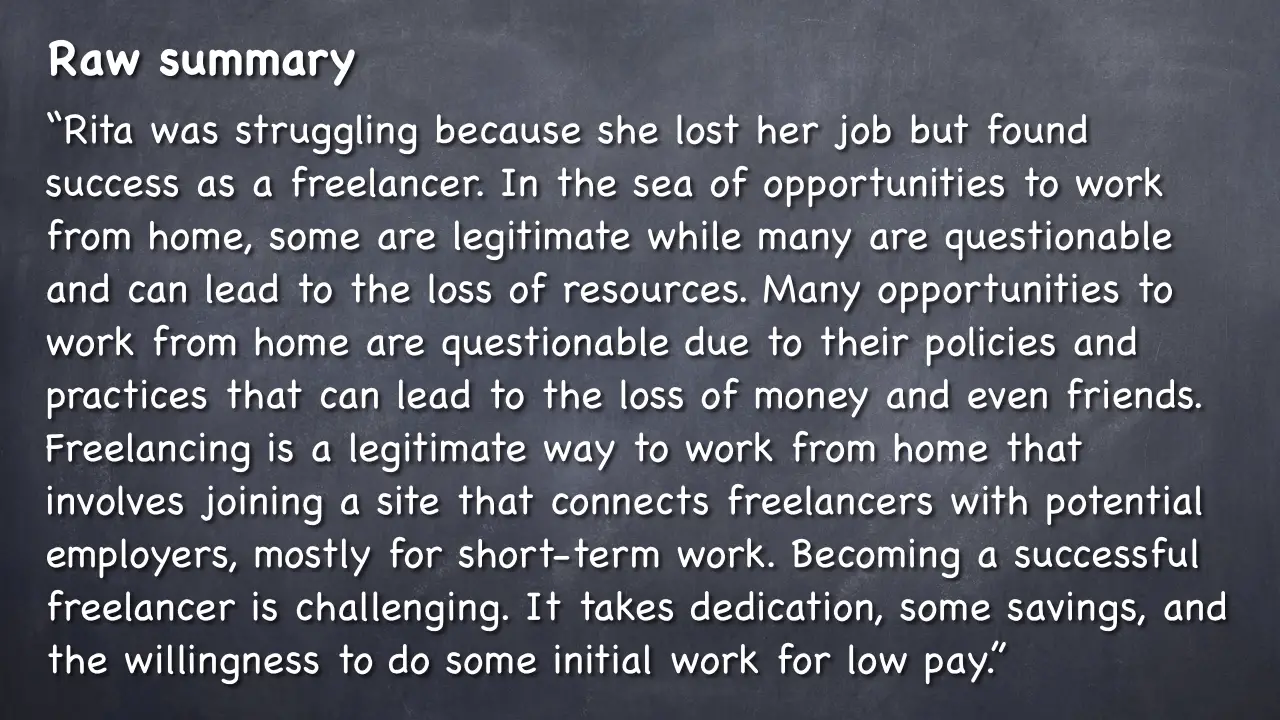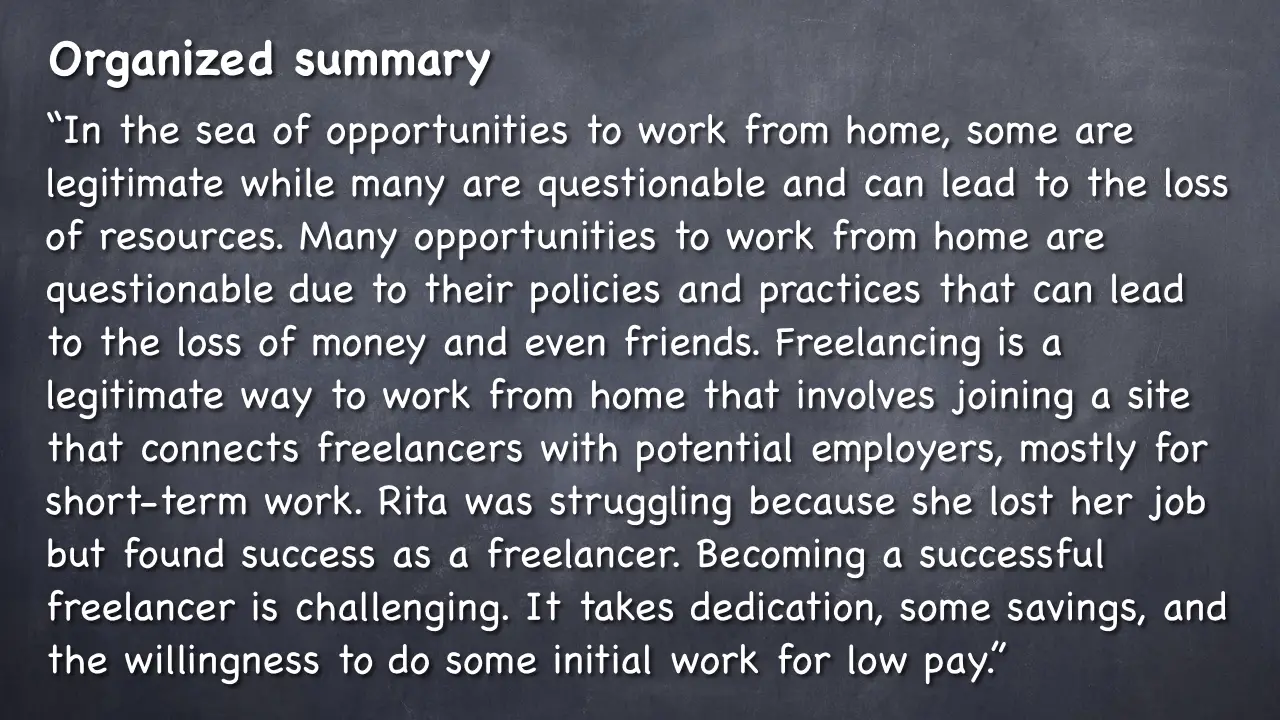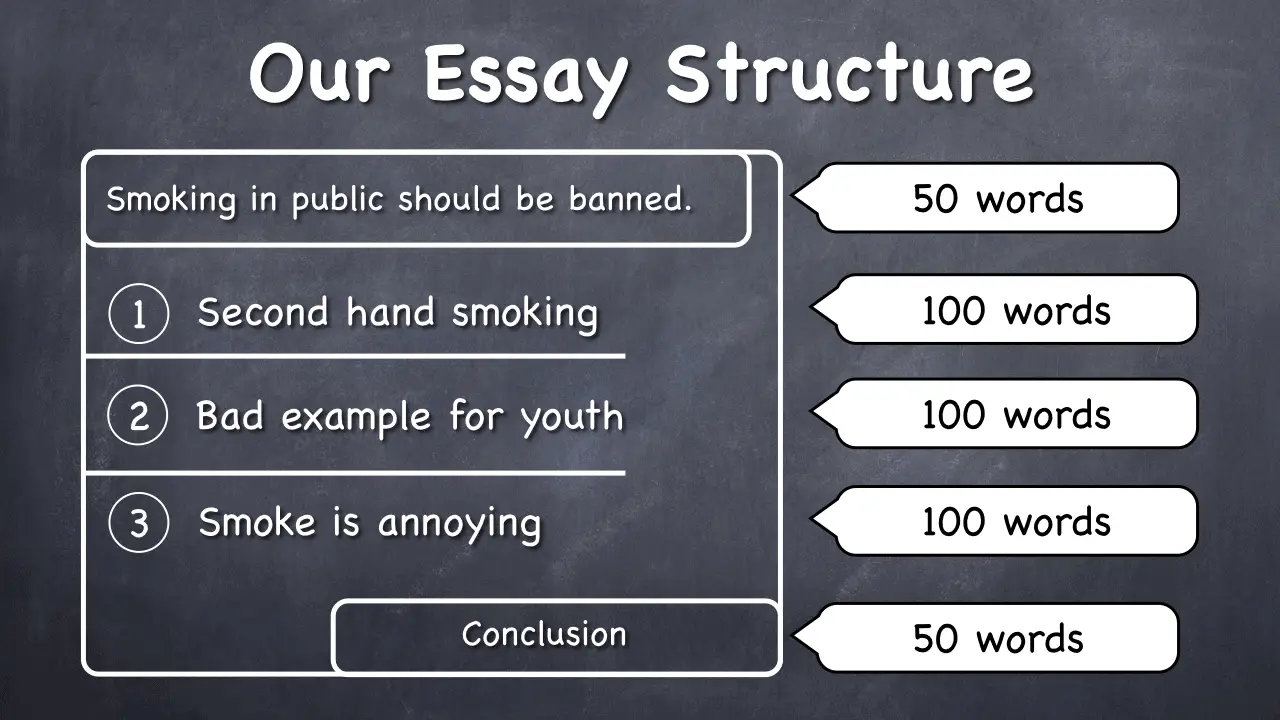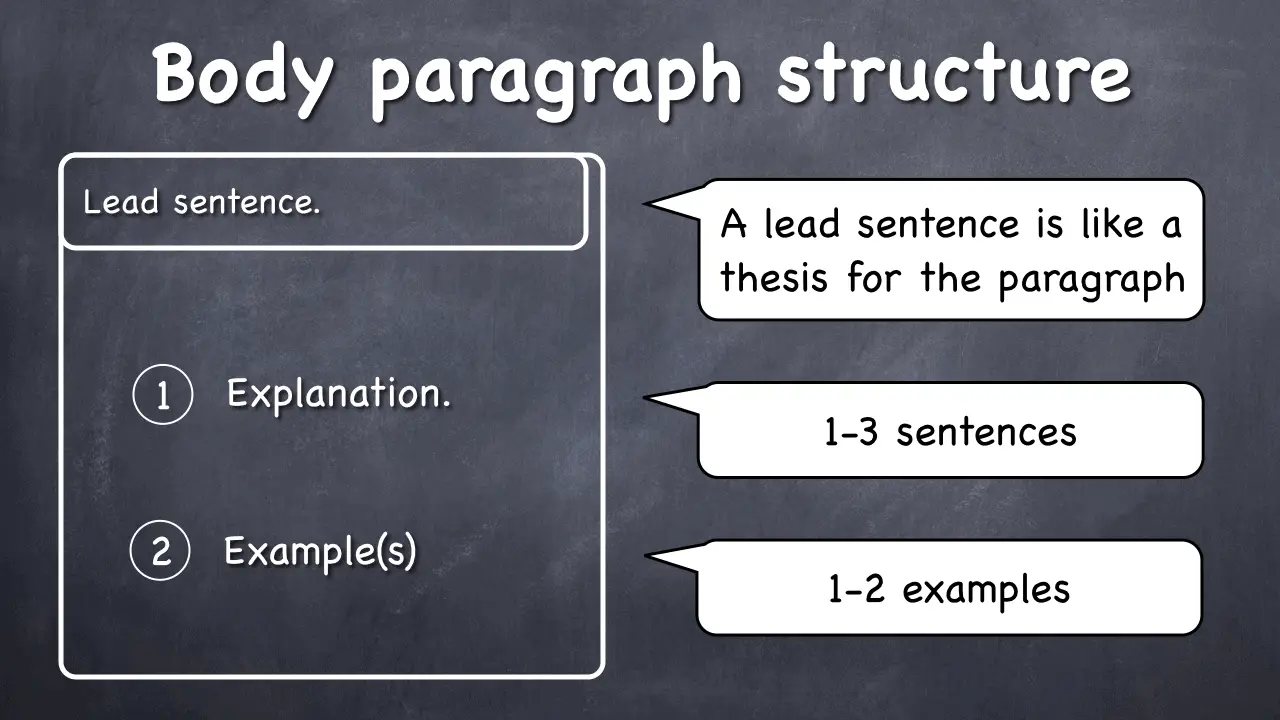
If you’re planning to take the VCLA (Virginia Communication and Literacy Assessment) test or have failed the writing or the summary part and want to pass it the next time, you’ve come to the right place.
This article is a step-by-step tutorial on how to pass the VCLA writing test, including the summary and the essay writing tasks.
We will skip all the details about all the logistics of taking this test because you can find that information on the VCLA website and other sites, as well.
In this tutorial, I will take you by the hand and guide you through the most practical steps you can take to write a strong summary and a convincing essay to pass the VCLA test.
First, we’ll do the summary, and then we’ll proceed to writing an entire essay from scratch based on a prompt.
Let’s get started.
How to Write a Strong VCLA Summary in 4 Steps
To pass the summary portion of the VCLA exam, you need to take the following four steps:
- Read the passage, summarizing each paragraph
- Put the paragraph summaries together
- Arrange the content from general to specific
- Add words to meet the word count requirement and do final edits
Let’s jump right in and do step 1.
Step 1. Read and summarize each paragraph
When you have your article in front of you, and the clock is ticking, you should make the best of your time. So, don’t read the whole article and try to understand it.
You don’t have to go through the article from beginning to end before you start summarizing it.
Just read the first paragraph and write a brief summary of it in preferably one sentence, possibly two.
Then read the next paragraph and do the same. By doing this, you are breaking the task into smaller, doable chunks.
While reading each paragraph, we should ask two questions:
- What or whom is the paragraph about?
- What is the author trying to say about this thing or person?
Let’s do exactly that and read each paragraph and write its summary under it. That’s our first step.
Working from Home
Paragraph 1
Rita was on her way home from a job interview when she met with her old friend Jamie whom she hadn’t seen in a while and stopped to have a chat. She told Jamie that she had lost her job a few weeks ago and had been looking for employment ever since. Jamie told her that she works from home and earns about as much money as she used to when she worked in an office and had a one hour commute each way. Inspired by her friend’s story, Rita looked up freelancing opportunities and got to work on her home-based income. Six months later, she was earning enough to pay all of her bills and to start putting some money away.
Summary of paragraph 1
Whom or what is this paragraph about?
– It’s about Rita.
What about her?
– She lost her job but then found a successful way to work from home as a freelancer.
Let’s put this together into a sentence:
“Rita was struggling because she lost her job but found success as a freelancer.”
Paragraph 2
Opportunities to work from home abound, but anyone wishing to replace a full-time income with one of them should be careful in this decision and in the choice of opportunity. A basic online search for home-based businesses and so-called “business opportunities” produces a multitude of options for the seeker of freedom from having to answer to a boss. But, as many surveys and reviews reveal, while some opportunities are legitimate and can work well, others can lead to a loss of money, time, and even relationships.
Summary of paragraph 2
Whom or what is this paragraph about?
– It’s about work from home opportunities.
What about them?
– Many of them exist, but only a few seem legitimate, and many are questionable.
Let’s put this together into a sentence:
“In the sea of opportunities to work from home, some are legitimate while many are questionable and can lead to the loss of resources.”
Paragraph 3
“Business opportunities” and offers to work-from-home often come from companies that espouse business practices and policies that are less than palatable or practicable for many people. A large number of these are the so-called network marketing companies. According to some studies and surveys, most such companies encourage their members to sign up for monthly memberships that involve a monthly purchase of their products. Financial success largely depends on the ability to persuade people to join the membership. Often, these people are friends and family members who become put off by persistent sales pitches into which conversations often devolve. As a result, the member can not only fail financially but may lose a friend or two in the process.
Summary of paragraph 3
Whom or what is this paragraph about?
– It’s about work from home opportunities that are questionable.
What about them?
– They have policies and practices that may lead to the loss of money and even friends.
Let’s put this together into a sentence:
“Many opportunities to work from home are questionable due to their policies and practices that can lead to the loss of money and even friends.”
Paragraph 4
Not all work from home opportunities involve dubious tactics. One category of possibilities to “work for yourself” is to become a freelancer. Such websites as Upwork and People per Hour are companies that simply connect freelancers with people, mostly business owners and managers, who choose to hire freelancers primarily for short-term jobs instead of employing full-time staff for those positions. These sites are popular and seem to produce good results for many seekers of self-employment. This kind of an opportunity is what Jamie had been doing before encouraging Rita to try.
Summary of paragraph 4
Whom or what is this paragraph about?
– It’s about freelancing.
What about it?
– It is a legitimate way to work from home that involves joining a site that connects freelancers with potential employers, mostly for short-term work.
Let’s put this together into a sentence:
“Freelancing is a legitimate way to work from home that involves joining a site that connects freelancers with potential employers, mostly for short-term work.”
Paragraph 5
Still, anecdotal and even some statistical evidence of success is not a guarantee that the freelancer will achieve full-time income or do so in reasonable time. Many freelancers who use these platforms often give up and go back to working in an office. According to many accounts of those who have found success, doing well as a freelancer requires patience, hard work, dedication, and some savings. It takes time to establish expertise and credibility. Some initial work for low pay is also to be expected. This is why aspiring freelancers should have some savings or keep their current jobs while they are working on going full-time. Thus, for those who are willing and have the resources to begin a work-from-home career, some doors are certainly open.
Summary of paragraph 5
Whom or what is this paragraph about?
– It’s about the challenges of becoming a successful freelancer.
What about them?
– They keep many aspiring freelancers from ever achieving full-time income because this path requires dedication, some savings, and the willingness to work for low pay initially.
Let’s put this together into a sentence. We can break this bit into two sentences.
“Becoming a successful freelancer is challenging. It takes dedication, some savings, and the willingness to do some initial work for low pay.”
Guess what – we’re done with step 1. We have five little summaries, and we also have a pretty good idea of what the article is about.
Let’s proceed to the next step.
Step 2. Put the paragraph summaries together
All we need to do is just copy and paste all the summaries into one paragraph. Then we can read it and see what we have created.
Let’s do it.

This is a very brief and raw summary of the passage. But it includes all the ideas, including the main and the supporting points.
Step 3. Arrange the content from general to specific
When you read our raw summary, you may have noticed that it doesn’t quite flow very well. That is because the statements are out of order in terms of how general or specific they are.
An essay or article should proceed from more general to more specific. But please note that the passage that you will read on the test will not necessarily be arranged that way.
For example, our reading passage begins with its most specific bit of information – an example. It is a story of Rita’s success. Everything else is more general.
A good summary should be organized from general to specific, even if the original passage is not arranged that way.
So, our job now is to identify how general or specific all the ideas are in our raw summary. And then we must put them together into one paragraph again.
In the raw summary, Rita’s example is clearly out of place. Where does it belong? Meaning, what is this an example of?
This is an example of being a successful freelancer. So, let’s place this example where it really belongs and read the summary again.

This is much better. In fact, this is a perfect brief summary. It flows perfectly from general to specific. And we could even leave it as it is if we didn’t have a couple of problems.
First, we need to add some words to make the summary a bit longer to meet the VCLA summary word count requirement.
And second, as we add words, we’ll notice that the wording is a little repetitious and a little awkward here and there.
We can make it flow better by making a couple of tweaks. This is easy to do while we add words because we read and reread the summary.
This is what we’ll do in the final step.
Step 4. Add words and make final edits
The VCLA word count requirement for a summary is between 150 and 200 words. We have 109 in the summary. So, we need to add at least 41 words.
To add some words, all we need to do is to pull some more specific information from the passage.
We can add some detail to each sentence or some of the sentences, as needed. We only need to add 41 words, and that is not many, so let’s not get carried away.
We should also make sure to use our own words as we expand the summary.
Let’s do it.
Final summary
“In the sea of opportunities to work from home, some are legitimate while many are questionable and can lead to problems. Many work from home opportunities are not worth pursuing due to their policies and practices that can lead to the loss of time, money, and reputation. Freelancing is a legitimate way to work from home that involves joining a site that connects freelancers with potential employers, mostly for short-term work. Rita is one such successful freelancer. She used to struggle after she lost her job. But she was inspired by a friend to give freelancing a try, and now she makes a full time living at it. However, becoming a successful freelancer has its challenges. It takes dedication because success does not come right away. Some savings are needed to pay the bills while building a reputation as a freelancer. And the person must be willing to do some initial work for low pay.”
As you can see, we made a few tweaks. We added 46 words and edited some of the sentences to make sure the summary flows.
Our summary now has 155 words. This is a perfect word count for a VCLA summary.
Throughout the summary, here is what we did:
We added words by using information from the passage.
For example, we really expanded Rita’s example and turned it from one sentence into three sentences. It went from 14 to 37 words.
We tweaked some of the sentences to remove or really reduce repetition.
For example, the phrase “opportunities to work from home” appeared twice in the first two sentences. So, we changed the second occurrence to “work from home opportunities.”
It’s not a big change but it does the job.
We also tweaked some of the sentences to make the summary flow better.
For example, we tweaked the ending of the first sentence. Remember, the first sentence is very important because it is essentially the thesis of the summary.
So, it has to be the most general statement. Initially, it contained the phrase “can lead to the loss of resources.”
But the next sentence includes the phrase “the loss of money and even friends.” But “friends” are not exactly “resources”. They are people.
So, to make the first sentence more precise, we simply replaced “loss of resources” with “problems.” This is more precise and more general, which is perfect for the first sentence.
Remember, we are proceeding from general to specific. So, the first sentence in the summary should be the most general one.
And guess what! We’re done with the summary. And now hopefully you have a pretty good idea of how to write it on the VCLA exam.
Just follow these steps in order as you practice, and you’ll be on your way to acing this part of the test.
How to Write a Convincing VCLA Essay in 5 Steps
When I say “VCLA essay,” I refer to the Composition part of the VCLA Writing Section.
All we need to know in this tutorial is that the essay must be 300 – 600 words long. You must take a stand on a given issue and support it using evidence.
As the VCLA website states, “You will be assessed on your ability to express, organize, and support opinions and ideas.” They won’t judge the opinion you express but only how you express it.
Here, I’ll give you a simple, step-by-step process to write a convincing essay that will get you a passing score.
Writing the composition (essay) portion of the VCLA exam is a 5-step process:
- Take a stand (agree or disagree)
- Write the thesis statement
- Write the body of the essay
- Write the conclusion
- Write an introductory sentence
Let’s get right to it.
To write a VCLA essay, we need a prompt. A popular topic I chose is “smoking in public.” Here is the prompt with two opposing points.
Smoking Should Be Allowed in Public Places
“Smokers have really had their rights impinged upon in the past two decades. Smoking has been banned in the interiors of most public institutions and gathering places, such as restaurants and public transportation. Now, lawmakers are considering banning smoking in most if not all public places. But smokers should be allowed to enjoy their habit in some public places, such as streets, beaches, and parks because otherwise their right to smoke at all is at stake. Smokers should not be confined to smoking only in the privacy of their homes.”
Smoking in Public Should Be Banned
“Tobacco smoke has been linked to serious health problems. Yet smokers are still allowed to smoke in many of the public places, putting public health in jeopardy. Second-hand smoking has become a rising issue with lawmakers in the past decade. Smoking in most, if not all public places should be banned to decrease public health risks. Smokers can still enjoy their habit in the privacy of their homes and in some designated areas. But most public smoking should be banned.”
Let’s assume that this VCLA prompt asks you to write a composition aimed at a local lawmaker, persuading them to one of the arguments above.
You must use logical arguments and relevant examples.
Sounds good. Let’s do it, step by step.
Step 1. Take a stand
In this step, all we need to do is choose one of the arguments above and write out our main point in a complete sentence. Let’s choose the second argument that smoking in public should be banned.
We’ll simply write a complete statement that states our opinion:
“Smoking in public should be banned.”
We’re ready for the next step.
Step 2. Write the thesis statement
Your thesis statement includes your main and supporting points.
We already have our main point because we created it in the previous step.
Now, we need three supporting points. In other words, we need three reasons why we believe that smoking should be banned in public places.
Let’s find these three reasons. We must remember to make sure that the reasons do not repeat each other. They must be different from one another.
Here are our three reasons:
- Smoking in public is a health hazard for non-smokers
- It promotes smoking among the youth
- Tobacco smoke is annoying to non-smokers
And now, all we need to do is write out the complete thesis statement, including the main and the supporting ideas:
Smoking in public should be banned, for three reasons. It is a health hazard for non-smokers. It promotes smoking among the youth. And tobacco smoke is annoying to non-smokers.
We reread our complete thesis statement to make sure it flows. And it does. We made a couple of tweaks in sentences to make it work.
For example, we added the phrase “for three reasons.” It’s a good practice.
We also changed “Smoking in public” to “It” in the second sentence. The reader knows that we’re talking about smoking in public because it’s the subject of the first sentence.
By the way, I wrote a detailed tutorial on how to write a thesis statement, if you want to master this skill.
Step 3. Write the body of the essay
This is the largest part of the essay, and it can be the most daunting for that reason.
But actually the hardest part of writing a VCLA essay is writing the thesis statement because it requires the most thinking.
Let me break down this task for you, and you’ll see that it’s not too hard at all.
The Word Count
You are required to write 300 – 600 words. Let’s just shoot for 400 because that is enough. This number also gives us a clear picture of how to distribute our words:
- Intro paragraph: 50 words
- Body paragraph 1: 100 words
- Body paragraph 2: 100 words
- Body paragraph 3: 100 words
- Conclusion paragraph: 50 words
As you can see, all we need is three body paragraphs of 100 words each. That’s not so hard, especially since we know exactly what goes in each paragraph.

It’s time to start writing our paragraphs. Each body paragraph must begin with a lead sentence, also known as a topic sentence.
It is the most general statement in the paragraph. You can look at it as a slightly expanded version of this point the way you wrote it in the thesis statement.
And after the lead sentence, you simply provide your support, going from more general to more specific.
Here is the structure of a body paragraph of a VCLA essay:

Let’s start writing.
Body of the Essay
Paragraph 1
“Smoking is a health hazard for non-smokers due to what is known as second-hand smoking. According to studies, second-hand smoking is real and can cause health problems in non-smokers. Tobacco smoke contains many harmful elements that seriously affect human health, even in small doses. The associated health problems range from lung cancer to all kinds of respiratory issues. My neighbor John has always been a smoker, but his wife Jennifer never smoked. She was recently diagnosed with COPD, which is a lung disease. Though the direct cause of her disease cannot be known for sure, John’s smoking probably had something to do with it.” (104 words)
Paragraph 2
“Smoking in public is a negative influence on the youth because it provides a bad example for them. Young people are notorious for imitating adult behavior. Unfortunately, they tend to imitate poor and risky behavior because it makes them feel cool and beyond their years. When adults smoke in public places, they expose this habit to the young people and send a message that it is okay or even a good thing. When I was growing up, many of my friends took up smoking because they were constantly exposed to the sight of adults enjoying this deadly habit.” (98 words)
Paragraph 3
“Tobacco smoke is not only hazardous but also annoying to non-smokers, which can be a serious issue. Any non-smoker who has ever been hit by a whiff of cigarette smoke can attest that this is not a pleasant experience. Tobacco smoke has a strong and distinct smell that repels many people. It can also “burn” a person’s eye if standing close enough to someone with a smoldering cigarette. I had a neighbor who used to come out of his apartment to smoke right under my window. While I was not concerned about any health issues, the smell of tobacco smoke drove me insane. I eventually asked him to smoke elsewhere, and that solved the problem.” (115 words)
And we’re done with the body of the essay! Please note:
- Each paragraph begins with a lead sentence.
- Each lead sentence is essentially a supporting point slightly expanded.
- Each paragraph proceeds from more general to more specific.
- Each one has roughly 100 words.
If you take another look at the Body Paragraph Structure diagram above, you’ll notice that our body paragraphs follow it very well.
The lead sentence is followed by an explanation and then an example.
By the way, your sentence structure matters a great deal, and I wrote a detailed guide on how to improve your sentences.
It’s time for the next step.
Step 4. Write the conclusion
Writing a conclusion really should not be difficult at all. All it should do is just restate the main and the supporting points in different words.
It should have exactly the same structure as our thesis statement. But it should not read like an exact copy of it. Just use your thesis statement as a reference.
Let’s write our conclusion:
“Smoking in public places should be outlawed. It results in second-hand smoking, which is harmful to people’s health. It provides a poor example for young people, potentially inspiring them to take up this deadly habit. And the annoyance that cigarette smoke often creates for others should also be minimized.”
This is a perfect VCLA conclusion paragraph. It restates all the points without sounding redundant. And we did not introduce anything new or irrelevant.
I actually wrote a detailed tutorial on how to write conclusions, if you want to explore this topic further.
Step 5. Write an introductory sentence
Exam graders usually expect some kind of an introduction before you get straight to the point in your opening paragraph (which is your thesis statement).
Writing this one is easy. All you need to do is just make an even more general statement than your main point. You can put your thesis in perspective or state why it is relevant.
Let’s do it:
“Smoking in public has been a subject of an ongoing debate, and it is time to make an important decision. Smoking in public should be banned, for three reasons. It is a health hazard for non-smokers. It promotes smoking among the youth. And tobacco smoke is annoying to non-smokers.”
This is our entire opening paragraph, and the first sentence is the introduction. It simply puts the subject in perspective by stating that there has been a debate about it for some time. That’s all.
Guess what! We are finished with our VCLA Writing tutorial! And now you know how to write an effective summary and a convincing essay that will get you that passing score.
Hope this was helpful.
Have the best of luck on your VCLA exam!
Tutor Phil
